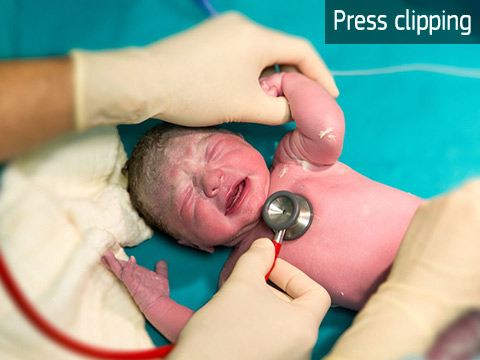An ERDF-funded German-Polish prevention project will examine new-born babies in Mecklenburg-Western Pomerania, Germany and Western Poland in a bid to save more lives and avoid serious childhood illnesses. Since 2015, German and Polish health experts have used EU funding to improve health care across the border region. This effort has already led to improvements in rescue services, with patients no longer having to be transferred from German to Polish ambulances at the border. Beyond this, the pa
- 10 April 2018

An ERDF-funded German-Polish prevention project will examine new-born babies in Mecklenburg-Western Pomerania, Germany and Western Poland in a bid to save more lives and avoid serious childhood illnesses.
Since 2015, German and Polish health experts have used EU funding to improve health care across the border region. This effort has already led to improvements in rescue services, with patients no longer having to be transferred from German to Polish ambulances at the border.
Beyond this, the partnership has focused on the early detection of diseases in new-born babies. Between 2012 and 2016, blood samples from 65 000 new-born babies were tested for 14 diseases which could cause severe lifelong disabilities or lead to death without early treatment. The tests showed 39 diseases were discovered in Poland and 19 in Mecklenburg-Western Pomerania. This included the early detection of galactosemia, a rare but treatable metabolic disease, in a Polish new-born. Without the diagnosis, the baby would have died within a few days of birth.
With help from the ERDF, the ‘RareScreen together’ project has now been expanded to cover a larger catchment area and to screen for even more diseases. Furthermore, as a result of the project, the screening for cystic fibrosis may also be offered free of charge and nationwide. If cystic fibrosis is treated very early in life, children have a better chance of development, are likely to have improved lung function and, ultimately, a longer life expectancy.
The next stage of the project will aim to screen as many as 100 000 new-born babies across the region and train up to 1 400 German and Polish medical students and employees.
Related links:
Source article on www.ostsee-zeitung.de 22/03/18
Author: Sybille Marx
Photo: © iStock/stockce
